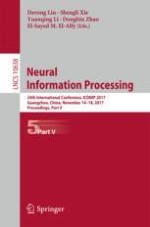2017 | OriginalPaper | Buchkapitel
Towards an Affective Computational Model for Machine Consciousness
verfasst von : Rohitash Chandra
Erschienen in: Neural Information Processing
Aktivieren Sie unsere intelligente Suche, um passende Fachinhalte oder Patente zu finden.
Wählen Sie Textabschnitte aus um mit Künstlicher Intelligenz passenden Patente zu finden. powered by
Markieren Sie Textabschnitte, um KI-gestützt weitere passende Inhalte zu finden. powered by
